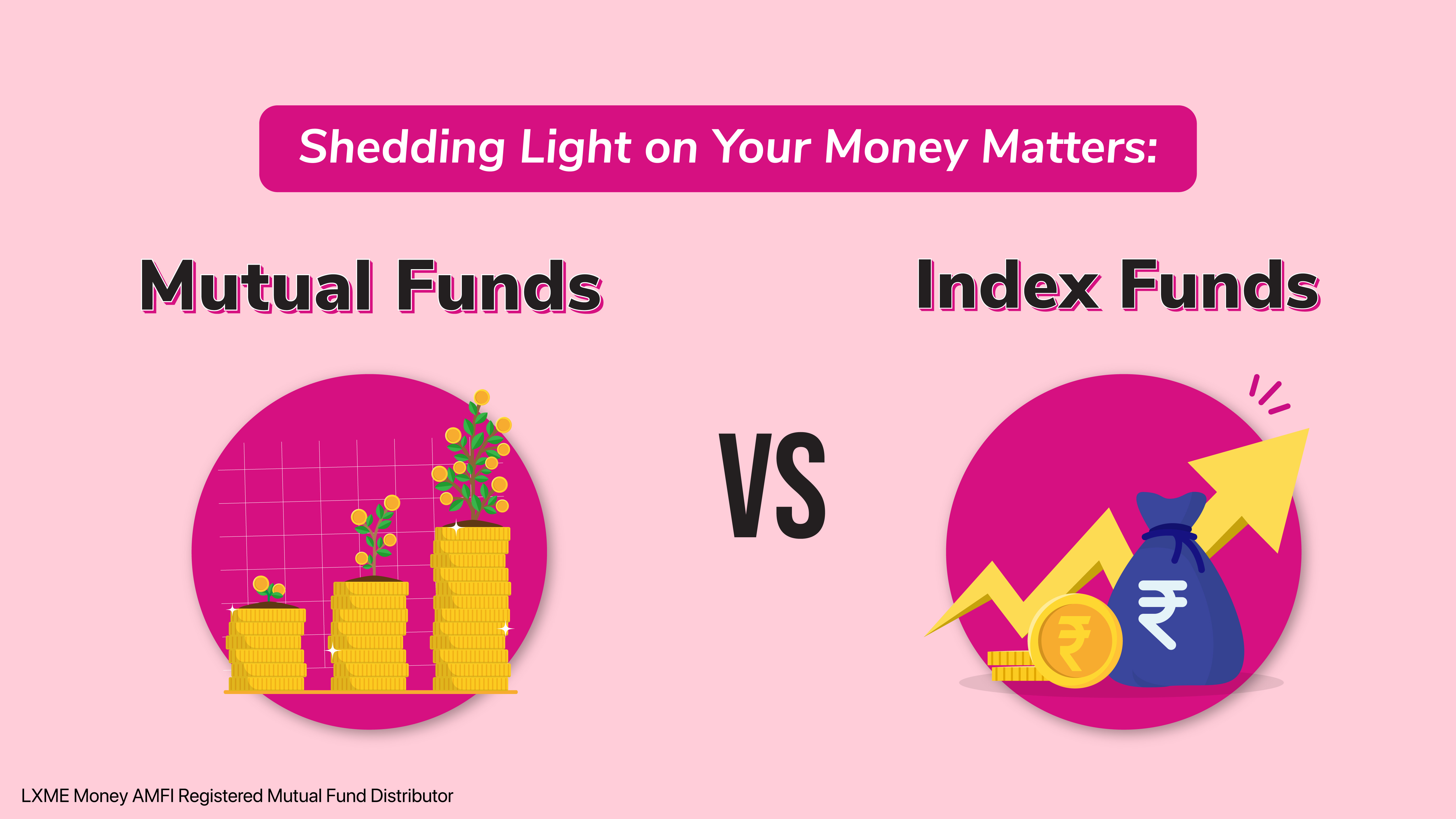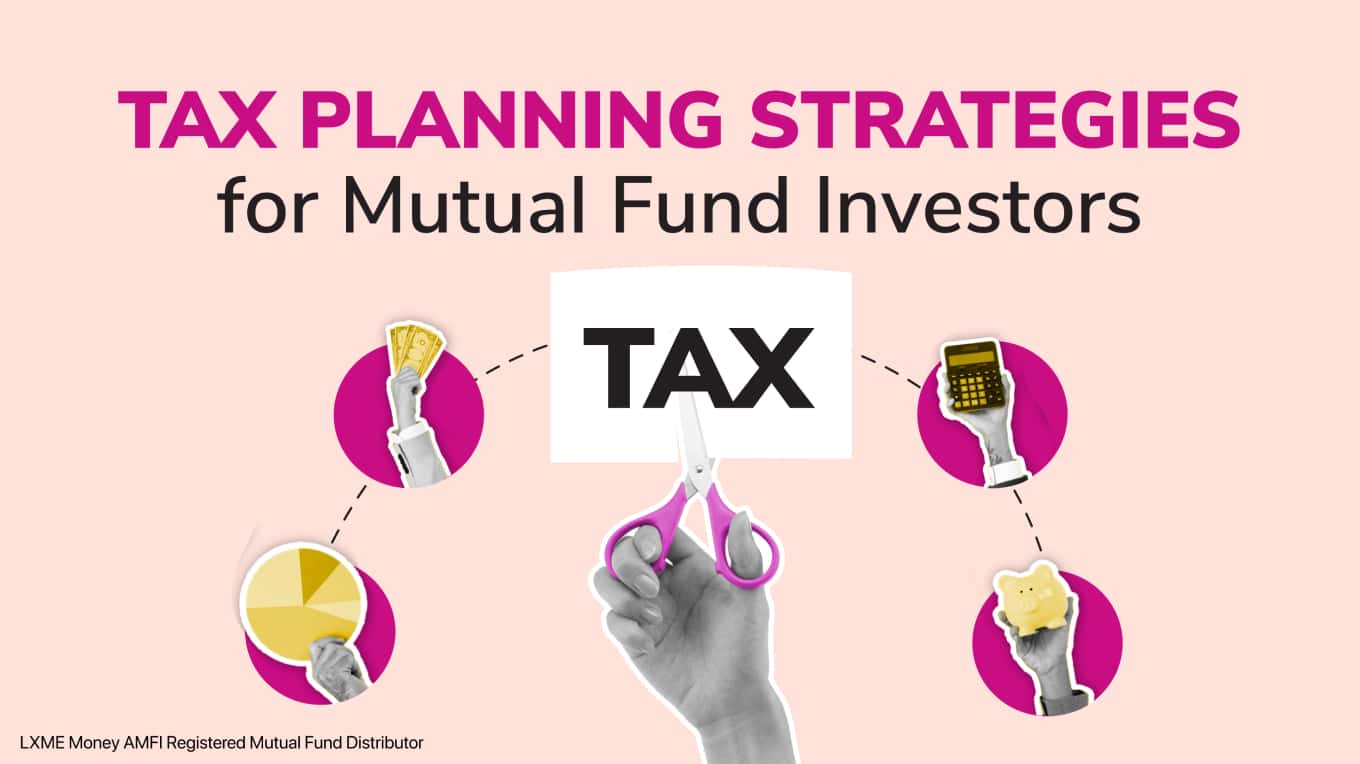Investing in Mutual Funds can be very exciting. In the process of investing for your goals and watching your money grow, it is common for women to forget about a crucial aspect of investing i.e., Tax Planning. This blog will provide some insight on taxation on mutual funds and how to save tax on mutual funds.
Importance of Tax Planning for Investors
Enhances your Returns
Enhancing returns through tax planning involves taking lawful measures to minimize the amount of taxes you need to pay, ultimately increasing the after-tax returns on your investments or income.
Preserves Wealth
By saving on taxes, you have more opportunities to re-invest money in your portfolio and take advantage of compounding to optimise wealth creation. Preserving wealth is important for building financial security.
How to save tax on Mutual Fund?
Some Funds are designed to help investors plan for tax-savings. Investing in these funds allow investors to reduce their overall tax liability. These are called ELSS and they are the best tax saving mutual funds.
ELSS: Tax saving Mutual Funds
Equity Linked Savings Scheme (ELSS) is a tax-saving mutual fund that allows you to claim a deduction of up to Rs. 1.5 Lakhs under section 80C under income tax.
Some features of ELSS –
- It invests in Equity and Equity-oriented securities.
- It has a 3-year lock-in period.
- Dual Advantage: ELSS Tax Benefits + Wealth Creation in the long term
- You can invest via SIP or Lumpsum
We understand taxes can be a very overwhelming topic. LXME’s here to help!
To start savings taxes and create wealth in the long term, explore our expert-curated Tax Savings Plan to enjoy the benefits of tax savings as well as wealth creation.
Please reach out to a Money Buddy for any assistance.
If I’m already investing in Mutual Funds, how can I plan my taxes?
If you are investing in mutual funds, then you should be aware of the taxation applicable to mutual funds. You must be wondering,”How are Mutual Funds taxed?” Your Mutual fund investments are taxed on the returns you earn when you sell them. The amount of tax to be paid majorly depends on the amount of time you’ve held the investment as well as on the tax rate.
Also, taxation on equity, debt, and gold mutual funds is different. Refer to the tables below to note the tax rate for different types of mutual funds.
| Parameters | Long Term Capital Gains(LTCG) | Short Term Capital Gains(STCG) |
| Equity MF Taxation | 10% on profits over Rs. 1 Lakh(If held for more than 12 months) | 15%(If held for less than 12 months) |
| Debt MF Taxation | Regardless of holding time, tax rate will be as per your income slab. | |
| Gold MF Taxation | ||
| Hybrid Funds Taxation | If Hybrid MF has allocated 65% towards equity instruments, it will be taxed as an Equity MF. If it has allocated less than 65% towards equity instruments, it will be taxed as a debt MF. | |
For example,
Suchi invested ₹ 1, 00,000 in Equity Mutual Funds in April 2023. In February 2024, she decided to sell her investment.
The current value of her investment is Rs. 2, 50,000. Her short-term capital gain is ₹ 1, 50,000. The tax rate on her STCG will be 15%. So, tax payable by her will be 1, 50,000*15% = ₹22,500.
Other ways to save tax on mutual fund?
Understand taxation on Mutual Funds –
The first step to implementing tax-planning is to understand the different taxation rules for mutual funds. Different Funds have different tax implications. Use the table above for your reference.
Reduce liability by offsetting losses –
In case of losses in any mutual fund investments, you can sell those units and you can offset your capital gains from MFs where you have gained profits and reduce your tax liability. This process is called tax-loss harvesting.
Hold Funds for Long Term –
Long-term capital gains on Equity mutual funds are taxed at a lower rate than short-term capital gains. So, if you hold your funds beyond the 12-month mark, you can benefit from long-term capital gains (LTCG) taxation.
Seek help –
Taxation and its implications on your investing can be confusing to understand. Take help of a professional to understand how to navigate mutual funds and taxes.
If you have tax-related queries then you can always ask on our LXME community and our Money Coaches will help you answer the same.
Tax planning is essential for women to maximize their returns. By including tax-saving strategies into their portfolio and by taking help from expert sources, women can build strong portfolios and be on the way to achieving their investment goals quicker.
FAQ’s
What are Capital Gains on Mutual Funds?
Capital gains on mutual funds are the profits/returns earned by an investor when they sell their mutual funds at a higher price than its purchase price.
How are Short-Term Capital Gains calculated on Mutual Funds?
Short-term capital gains from Equity Mutual Funds are taxed at 15%. Non-equity funds i.e. Debt and Gold Mutual Funds are taxed at the income slab of the individual which is based on their total taxable income.
How to invest in ELSS?
You can invest in ELSS through LXME’s expert-curated tax saving portfolio which allows you to get a deduction under section 80C up to the limit of ₹1.5 lakh.
Can I invest in ELSS through SIP?
Yes, women can invest in ELSS periodically by investing through SIP.
Share this blog with your family and friends if you find it insightful!!
Download the LXME app for more such content!
New Investor? Request a Callback.
Fill in your details and we will guide you at every step
other blogs

Mutual Funds July 1, 2024
Shedding Light on Your Money Matters: Mutual Funds vs Index Funds
Conquering your financial goals takes knowledge and the right tools. At LXME, we empower women to take control of their money with online SIP investments. Today, we’ll delve into the world of mutual funds and index funds, two popular investment options. Understanding the difference between mutual fund and index fund will equip you to make … Shedding Light on Your Money Matters: Mutual Funds vs Index Funds

Mutual Funds
Conquer Your Future: Best SIP Plans for 30 Years and Building Financial Freedom with LXME
At LXME, we empower women to take control of their finances and achieve financial freedom. We understand the unique challenges women face when it comes to money matters, and that’s why we’ve built a safe and supportive investment platform designed exclusively catering to investment for women. But financial freedom doesn’t happen overnight, it requires a … Conquer Your Future: Best SIP Plans for 30 Years and Building Financial Freedom with LXME

Money Hacks Mutual Funds June 27, 2024
Navigating the Best Time to Buy Shares for Long-Term Growth
In the dynamic world of stock markets, strategic timing can be a game-changer for long-term investors. Our comprehensive blog, “Trying to Time Investments? Here Are Some Tips,” available on LXME, offers valuable insights into mastering the art of timing in stock investments. Uncover tips and strategies to identify the opportune moments to buy shares for … Navigating the Best Time to Buy Shares for Long-Term Growth









